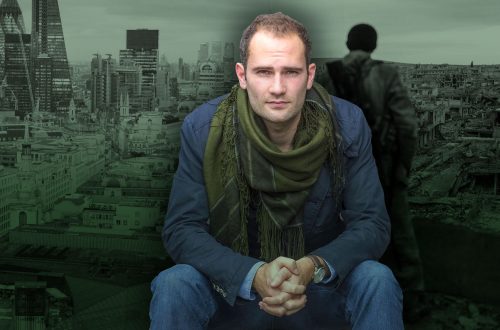I couldn’t agree with Asim Siddiqui more:
The Islamic movements dominated Muslim political discourse in the 20th century. Political models coming from the west, such as representative democracy and accountable governments, were at best seen as tools to achieve an Islamic theocracy or at worst dismissed as unIslamic. Meanwhile monarchies, dictatorships and tyranny were able to thrive in the name of Islam. Much of the last 100 years has been spent politicising Islam rather than working for a just polity: the rule of law, equal citizenship and democratically accountable governments. The 21st century will see Islamist ideas dismantled by Muslims and western political models incorporated.
Parallel to this, however, will be the Muslim challenge to present ideas emanating from the west as not un-Islamic but rather universal – a job in the past made difficult by colonialism and now by the west’s “war on terror”.
I think that, in order for Islamist politics to be discredited, it must first come to power. The concern, of course, is that Islamist governments in power will offer “one person, one vote, one time”, as Edward Djerejian famously put it. However, the memory of democracy is marginally better than no democracy at all: because at least the citizenry will have had some memory of what was stolen from them by the clerics.
Anyhow, if you pop over to the CiF blog, you can catch Inayat “Bungle” Bunglawala cheerleading for the Tunisian Muslim Brotherhood leader (and dad of the coquettish but verbose Soummaya): Rashid Ghannushi. He’s also at pains to emphasise that Islamism is at the very heart of Islam. What a surprise!
But my main point is about this word ‘Islamist’. What do you take it to mean and can you let us know whether you believe the Prophet Muhammad was an ‘Islamist’. After all, he was a statesman as well as a religious leader, he negotiated peace treaties and conducted wars. He established a state based on Islamic laws. Did he ‘politicise Islam’ or was Islam from the outset political?
Asim’s response:
Thanks for your comments. The only real criticism so far has come from Inayat, bless.
Our Beloved Prophet was both a temporal political leader and a recipient of revelation. There were numerous occasions when he would be asked by his companions if an opinion he had was from revelation or from his own judgement – where it was the latter the companions would be free (and did) to challenge him and suggest alternatives. There were also occasions when ‘political’ decisions were made guided by revelation.
However, revelation ended with him. No subsequent leader can claim divine guidance or an insight into God’s mind on any political decision they make. Hence, my point is that all leaders must be accountable to the people, not claim they are accountable to God (which in reality means accountability to no one and allows them to get away with murder, literally).
It is the conflating of the two roles the Prophet held simultaneously that has so adeptly been manipulated by many Islamists to pursue their own political agendas. My definition of an Islamist is anyone who seeks political power to impose their interpretation of Islam on others.
What’s yours, dear?
And later:
Inayat – the Prophet was involved in politics, I have already said that. However that does not make Islam a “political faith”. We must not conflate the two roles he had (as I said earlier). Surely you can see the dangers in doing so? You don’t need to be a Muslim to seek social justice – I’m sure you will agree? Many of the most humanitarian people are non-Muslim. Islam is a religion (like any other) which has a set of moral guidelines that urges believers to do good works – but its up to the believer how s/he goes about doing that. In my view, the role of ulema (Muslim scholars) is to act as the moral conscience of society, i.e. a modern day pressure group. Their role is not to vet/approve legislation – otherwise they would be above the law and accountable to no one. Do you see where this is going?
Inayat, seriously bro, you do not want to live in an Islamist-run ‘Islamic state’. For us it’s academic living happily in the secular west, for others it’s a matter of life and death. So just chill out on the Islamism and promote some love.
Siddiqui is spot on.
Anyhow, no comments on this thread. Go over to CiF to discuss it there.


